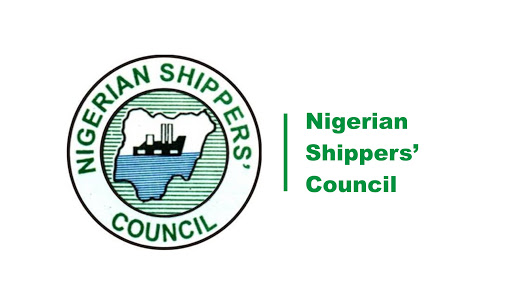Nigeria’s pursuit of maximizing its potential within the African Continental Free Trade Area (AfCFTA), a market estimated at $3.4 trillion, is being hampered by chronic inefficiencies plaguing its ports. These inefficiencies, characterized by protracted cargo dwell times, exorbitant charges, and operational bottlenecks, are bleeding the nation’s economy, with an estimated annual loss of N2.5 trillion. The Nigerian Shippers’ Council (NSC) and the Nigerian Ports Authority (NPA), recognizing the gravity of the situation, have jointly emphasized the urgent need for robust public-private partnerships to modernize port operations and unlock the country’s trade potential. Their call to action resonates with concerns raised by the Lagos Chamber of Commerce and Industry (LCCI), which has highlighted the damaging impact of these inefficiencies on the private sector and Nigeria’s global competitiveness.
The crux of the problem lies in the stark contrast between Nigeria’s port performance and that of leading global ports. While efficient ports like those in Singapore, Rotterdam, and Shanghai boast streamlined operations, rapid cargo turnaround, and advanced digital platforms, Nigeria’s ports are mired in manual processes, congestion, and inadequate hinterland connectivity. Cargo dwell times in Nigerian ports average 18 to 20 days, a stark contrast to the global benchmark of 3 to 5 days. This excessive dwell time translates into higher costs for businesses, extended lead times, and a significant impediment to trade flows. The NSC pointed out that Nigerian port charges are 30-40% higher than the West African average, further compounding the challenges faced by businesses and hindering Nigeria’s ability to compete effectively within the AfCFTA.
Recognizing the systemic nature of the problem, the NSC has underscored that port inefficiency extends beyond mere delays in cargo movement. It encompasses a range of interconnected issues, including outdated infrastructure, lack of digitization, and a regulatory environment lacking transparency. Addressing these multifaceted challenges requires a comprehensive approach that involves modernizing infrastructure, implementing digital solutions, and fostering a regulatory environment conducive to efficient operations. The NSC is developing a Port Pricing Index to monitor tariffs and prevent overcharging, aiming to bring transparency and fairness to port pricing.
The NPA, in its contribution to the reform agenda, is pursuing a strategy of port automation and infrastructure upgrades. Key initiatives include automating the billing system and Ship Entry Notice process, and collaborating with Trucks Transit Parks to electronically manage over 70,000 port-bound trucks. These measures aim to mitigate traffic congestion, particularly around Apapa, a notorious bottleneck. Furthermore, the NPA is undertaking pilot infrastructure modernization projects at the Lagos and Tin Can Island ports and collaborating with the International Maritime Organisation to implement a Port Community System. This system will digitally connect all stakeholders, streamlining communication and expediting cargo handling.
Both the NSC and NPA emphasize the critical role of private sector investment in realizing Nigeria’s port reform ambitions. They believe that terminal operators need to modernize their facilities, government agencies need to harmonize their procedures, and the private sector needs to invest in infrastructure and supply chain innovation. This collaborative approach, they argue, is essential to achieving the desired improvements in port efficiency and competitiveness. The NSC particularly stressed the urgency of these reforms in the context of the AfCFTA, warning that Nigeria risks being marginalized if its ports remain uncompetitive.
The call for legislative action to solidify the reform efforts is also a key aspect of the ongoing dialogue. The NSC has urged the National Assembly to pass the Port Economic Regulation Bill, arguing that this legislation will provide the necessary legal framework to institutionalize fairness, transparency, and efficiency in port operations. This legal backing, they believe, will provide a stable and predictable environment for investment and operations, further contributing to the long-term viability of the port sector.
However, challenges remain. Stakeholders, including the LCCI, have expressed concerns about multiple levies imposed on businesses, particularly importers, by maritime agencies. They caution that regulators should not prioritize revenue generation over facilitating trade and economic growth. The absence of the Nigeria Customs Service (NCS) from the LCCI stakeholders’ forum also drew criticism, highlighting the importance of engaging all key players in the reform process. The effectiveness of the proposed reforms hinges on the commitment of all stakeholders to collaborate and implement the necessary changes, ensuring that Nigeria’s ports become a catalyst for economic growth and its successful integration into the AfCFTA.
The NSC and NPA’s appeal for stronger public-private partnerships represents a crucial step towards addressing the deep-rooted inefficiencies that have long plagued Nigeria’s ports. By implementing comprehensive reforms, embracing automation and digitization, and fostering a collaborative approach among all stakeholders, Nigeria can transform its ports into efficient gateways for trade, unlocking the immense potential of the AfCFTA and driving sustainable economic growth. The successful implementation of these reforms will require sustained commitment, effective regulation, and a shared vision for the future of Nigeria’s maritime sector. The urgency of these reforms is underscored by the potential of the AfCFTA, an opportunity that Nigeria cannot afford to miss due to the persistent inefficiencies in its port system.














